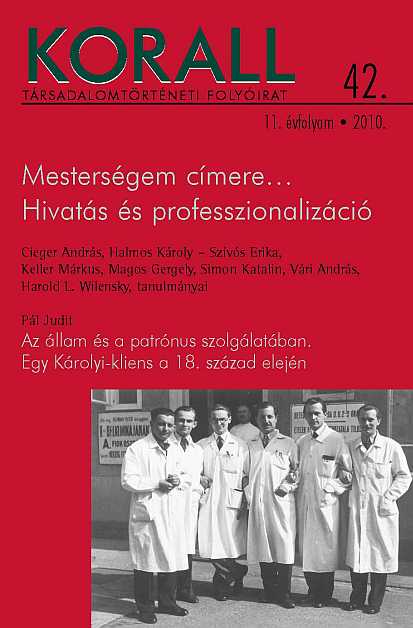Kiterjedt állam – beteljesületlen álom. A magyarországi gyógyszerészet professzionalizációja
Omnipotent State and Unfulfilled Dreams. The Professionalization of Hungarian Pharmaceutics
Author(s): Gergely MagosSubject(s): History
Published by: KORALL Társadalomtörténeti Egyesület
Summary/Abstract: The study traces the development of the pharmaceutical profession from the eighteenth century to the First World War and compares this process of the American professionalization as described by Harold L. Wilensky to arrive to conclusions about its success. Following a short introduction to the early history, the study describes the centralisation of pharmaceutics in the eighteenth century, with special emphasis on the relevant ordinances of the Generale normativum in re sanitatis, and the beginnings of the pharmaceutical training in the higher education, which in Hungary was launched by the foundation of the medical faculty at the University of Trnava. The first professional associations were established in the 1830s, and, parallel to the development of professional discourse, the first demands for reform were formulated in this period. The age of absolutism brought about a relative setback in the self-organisation of pharmaceutical professionals, but the dissipation of the unfavourable political climate encouraged the re-organisation of associations: the publication of the first pharmaceutical journal was followed by the foundation of the national association in 1872. The next milestone in the history of the pharmaceutical profession was the 1876 regulation of public health and pharmaceutics. In the age of dualism, pharmaceutics became an ‘accomplished’ profession and came to possess all the characteristics of professionalization: the deepening generational conflicts resulted in an increasing demand for raising educational requirements, the gap between affluent and impoverished professionals widened, the ties and conflicts with related professions were strengthening, which caused the emergence of protectionism in the pharmaceutical market. Finally, the study focuses on the reasons behind the government’s rejection of the pharmaceutical professionals’ petition for a chamber of commerce with compulsory chartered membership, which was the ultimate means to attain professional autonomy.
Journal: Korall - Társadalomtörténeti folyóirat
- Issue Year: 2010
- Issue No: 42
- Page Range: 54-76
- Page Count: 23
- Language: Hungarian

